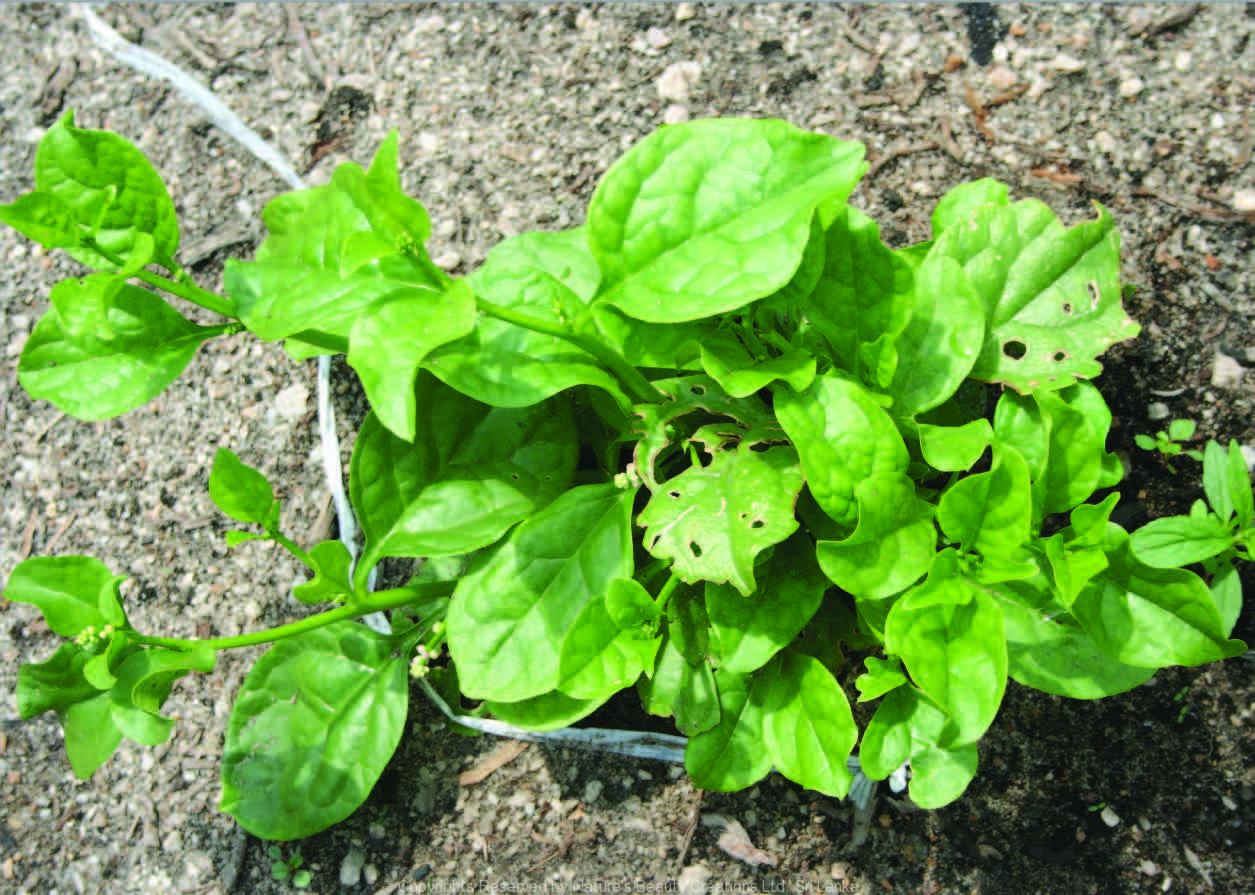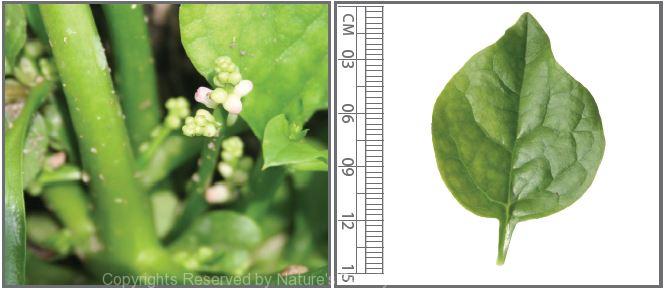

Traditional Knowledge
Useful plant parts :
Whole plant, young shoot and leaf
Uses in traditional medicine :
- Whole plant is ground and applied on boils and burns
- Young shoots and leaves are taken as a vegetable with dhal for dropsy and ulcers
- Crushed leaves are topically applied for scalds
- Boiled leaves are used as a demulcent, diuretic, emollient, laxative and a suppurant
Scientific Research
Chemical constituents:
Indole derived compounds: gomphrenin I, betanidin-dihexose, isobetanidin-dihexose and betalains from fruits
Bioactivity :
Gomphrenin I: antioxidative, anti-inflammatory; aqueous extract fresh and dry leaves: anabolizing and virilizing effects; methanol extract of fresh leaves: increases testosterone, estradiol and aromatase mRNA levels in leydig cells
Clinical:
Note :
Young shoots and leaves are used as vegetables
References : Bamidele, O. et al., (2010), Effects of aqueous extract of Basella alba leaves on haematological and biochemical parameters in albino rats, African Journal of Biotechnology, 9(41), 6952-6955. Nantia, E. A. et al., (2011), Effects of the Methanol Extract of Basella alba L (Basellaceae) on Steroid Production in Leydig Cells, Indian Journal of Molecular science, 12(1), 376-384. Lin, S. M. et al., (2010), Structural Identification and Bioactivities of Red-Violet Pigments Present in Basella alba Fruits, Journal of Agriculture and food Chemistry, 58(19), 10364-10372. Moundipa, F. P. et al., (1999), Effects of aqueous extracts of Hibiscus macranthus and Basella alba in mature rat testis function, Journal of Ethnopharmacology, 65(2), 133-139.
Copyrights Reserved By
Natures Beauty Creations




